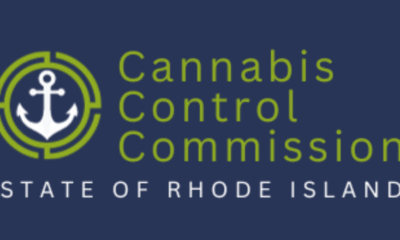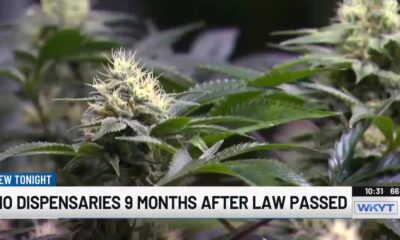Massachusetts cannabis regulators approved sweeping draft rules for marijuana consumption lounges and event venues for public comment, with the hope of creating a sustainable business framework while addressing challenges that have derailed similar efforts in other states.
The state’s Cannabis Control Commission on Tuesday unveiled the long-anticipated regulations, which establish three license types:
- Supplemental permits for existing dispensaries
- Stand-alone consumption venues
- Event organizers
All three categories will be exclusive to social equity participants and small businesses for the program’s first five years.
“This has got to make business sense,” Acting Chair Bruce Stebbins said during a press conference after the meeting. “We’ve done our level best to create a regulatory framework that has a return on investment for anybody pursuing these licenses.”
The commission abandoned earlier regulatory drafts for the segment that dated back to 2017.
“Former commissioners even said, ‘Scrap everything that was in the regs and start over,’” Commissioner Nurys Camargo said. The process, she noted, was shaped by lessons learned from consumption programs in San Francisco and Oakland in California and Las Vegas.
“Folks think social consumption is the next green rush or a cash cow, and it’s not,” Camargo said, pointing to failed dispensary-adjacent lounges in other states. “We forget that cannabis culture plays a big part in where you purchase, where you consume, and who you consume with.”
To avoid operational snags faced elsewhere, the commission rejected rigid ventilation rules that proved prohibitively expensive. Instead, the framework allows for approval of emerging, portable ventilation technologies, particularly for outdoor spaces.
The commission set application fees at $1,000 for event organizers and $1,500 for other license types, with annual licensing fees ranging from $5,000 to $10,000.
Deputy General Counsel Michael Baker said during the meeting that licensees must choose between allowing smoking or nonsmoking consumption, with different compliance requirements for each.
“We do this in order to cut down on compliance costs and also to make it a little bit easier,” he explained.
Event organizer licenses will permit up to 24 cannabis-friendly gatherings annually. Commissioners acknowledged this cap could shift based on feedback from a public comment period open through Jan. 23, 2025.
“If I’m an organizer hosting three or four events a month in different cities, 24 may not be enough,” Camargo said.
She added that the rules also call for curated events, pop-ups, art exhibitions and spaces catering to older demographics.
Questions also remain about potential partnerships with large entertainment companies. While firms like Live Nation could eventually participate, ownership must flow through eligible license holders.
“Live Nation is probably not part of our universe, but there will be space,” Camargo confirmed to Green Market Report. “And that’s going to be up to the business owners and to the participants in the universe and how they want to partner and who they want to partner with.”
Safety provisions require designated “cool-down spaces” for individuals experiencing adverse reactions. Cannabis sales also must end 30 minutes before closing time, and venues are prohibited from serving alcohol or tobacco.
Medical marijuana patients will be allowed to bring their own products or receive deliveries at consumption sites. Venues must provide food and water, though operators can boost revenue by partnering with nearby restaurants, Stebbins told Green Market Report last week.
The regulations reflect months of collaboration with municipalities, public health agencies, district attorneys and industry groups, according to regulators.
“We really went deep with our stakeholders in Massachusetts,” Camargo said. “They’ve been part of these tough conversations, and they’ve all come a long way themselves.”
The commission reported early interest from eight municipalities, including Boston, as potential hosts for consumption spaces.
Commissioner Kim Roy raised questions about point-of-sale system readiness and suggested requiring QR codes to provide consumers easy access to certificates of analysis – documents detailing product testing results that consumers currently struggle to obtain. Ongoing discussions with Metrc, the state’s inventory tracking provider, are focused on adapting seed-to-sale systems for the new program.
Commissioners acknowledged implementation will require significant resources, including expanded staffing and IT system modifications. The commission recently approved a budget request including $1.5 million for public awareness initiatives related to social consumption to support the rollout. Funding will also cover staff training to recognize impairment and manage consumer safety concerns.
Public listening sessions will supplement the formal comment period so that communities and businesses can weigh in before final rules are adopted. Regulators are shooting for a mid-2025 program launch.
Public comments are open through Jan. 23, 2025, after which commissioners will host a public hearing and make additional edits.


 California Cannabis Updates1 year ago
California Cannabis Updates1 year ago
 Breaking News1 year ago
Breaking News1 year ago
 best list1 year ago
best list1 year ago
 Business12 months ago
Business12 months ago
 cbd1 year ago
cbd1 year ago
 Bay Smokes1 year ago
Bay Smokes1 year ago
 cannabis brands12 months ago
cannabis brands12 months ago
 autoflower seeds12 months ago
autoflower seeds12 months ago

















































